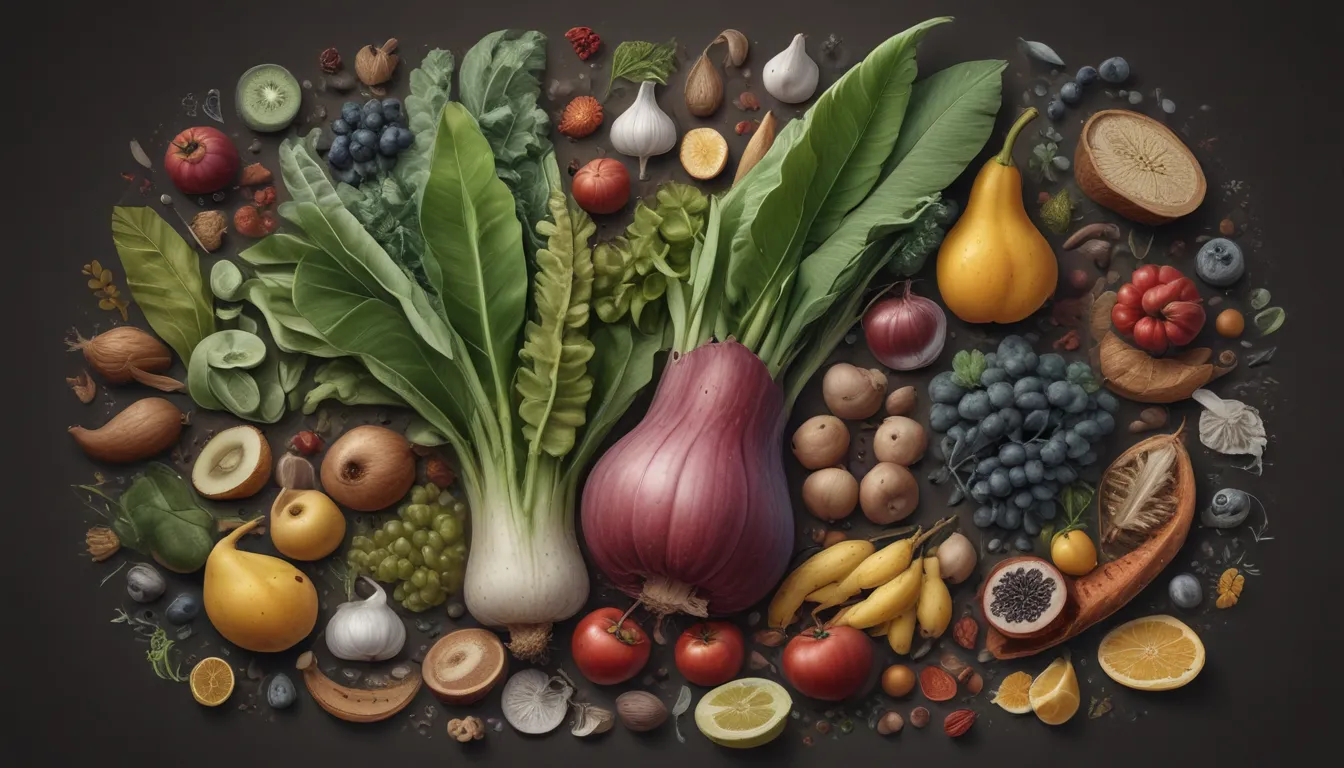A Note About Images: The images used in our articles are for illustration purposes only and may not exactly match the content. They are meant to engage readers, but the text should be relied upon for accurate information.
Welcome to the fascinating world of potassium! This versatile element plays a crucial role in various biological processes and is an essential nutrient for both plants and humans. From its discovery in the 19th century to its impact on human health, potassium has a rich history and significant importance. In this article, we will explore 20 interesting facts about potassium, shedding light on its properties, uses, and significance. Whether you’re curious about its appearance, its role in plant growth, or its impact on cardiovascular health, these facts will provide a comprehensive understanding of potassium’s importance. So, let’s dive into the intriguing world of potassium and uncover the remarkable aspects of this essential element.
Unveiling the Unique Characteristics of Potassium
-
Potassium is a silvery-white metal: One of the most intriguing facts about potassium is its appearance. It is a soft, silvery-white metal that oxidizes rapidly in air and must be stored under oil to prevent tarnishing. This highly reactive element is part of the alkali metal group and is denoted by the symbol K on the periodic table.
-
Potassium was the first metal to be discovered through electrolysis: In 1807, Sir Humphry Davy used electrolysis to extract potassium from caustic potash (potassium hydroxide), marking the first time a metal was isolated using this method.
-
Potassium is essential for plant growth: As a vital nutrient for plants, potassium plays a crucial role in various physiological processes, including photosynthesis, protein synthesis, and the regulation of water content. Its presence in soil is essential for the healthy growth of crops, making it an indispensable component of agricultural fertilizers.
The Health Benefits of Potassium
-
Potassium offers numerous health benefits: Potassium helps regulate blood pressure, supports muscle and nerve function, and reduces the risk of stroke. Additionally, it aids in the proper functioning of the heart, kidneys, and other organs, making it an essential mineral for overall well-being.
-
Potassium is crucial for maintaining electrolyte balance: As an electrolyte, potassium plays a vital role in maintaining proper fluid balance, transmitting nerve signals, and supporting muscle contractions. Its presence in the body is essential for regulating heartbeat, muscle function, and overall cellular function.
-
Potassium has a significant impact on cardiovascular health: Adequate potassium intake is associated with a reduced risk of stroke and other cardiovascular conditions. It helps regulate blood pressure, supports proper heart function, and contributes to overall cardiovascular well-being.
The Versatile Applications of Potassium
-
Potassium compounds are used in a variety of industrial applications: Compounds of potassium, such as potassium hydroxide and potassium carbonate, are utilized in the production of soaps, glass, and fertilizers. Additionally, they serve as essential components in various chemical processes, including the manufacturing of potassium salts and the extraction of certain metals.
-
Potassium has been used in the production of explosives: Due to its highly reactive nature, potassium has been utilized in the manufacturing of certain explosives. Compounds containing potassium, such as potassium nitrate, have been employed in the creation of gunpowder and other explosive materials throughout history.
-
Potassium has been used in the production of soap: One of the lesser-known applications of potassium is its role in the production of soap. Potassium hydroxide, also known as caustic potash, is a key ingredient in the manufacturing of liquid soaps and contributes to the saponification process that produces these cleansing products.
Nourish Your Body with Potassium-Rich Foods
-
What foods are rich in potassium? Foods such as bananas, oranges, spinach, sweet potatoes, and avocados are excellent sources of potassium. Including these nutrient-rich foods in one’s diet can help maintain healthy potassium levels in the body, supporting various physiological functions and promoting overall wellness.
-
What are the effects of potassium deficiency? A deficiency in potassium can lead to symptoms such as muscle weakness, fatigue, cramps, and an irregular heartbeat. In severe cases, it can even result in paralysis and disruptions in the normal electrical activity of the heart, emphasizing the crucial role that potassium plays in maintaining overall health.
-
How can I ensure I’m getting enough potassium in my diet? Incorporating potassium-rich foods such as fruits, vegetables, and legumes into your daily meals can help ensure an adequate intake of this essential mineral. It’s important to maintain a balanced diet and consult with a healthcare professional if you have specific concerns about potassium levels.
Unlocking the Mysteries of Potassium Isotopes
-
Potassium isotopes have various applications: Isotopes of potassium, such as potassium-40, are utilized in diverse applications, including geological dating, medical imaging, and radiation measurements. The unique properties of these isotopes make them valuable tools in fields such as archaeology, geology, and nuclear medicine.
-
Potassium has a strong affinity for oxygen: Due to its high reactivity, potassium readily forms compounds with oxygen. This affinity for oxygen results in the rapid oxidation of potassium when exposed to air, leading to the formation of potassium oxide and potassium superoxide on its surface.
-
Potassium has a vital role in nerve transmission: As an electrolyte, potassium is essential for the transmission of nerve signals throughout the body. It plays a fundamental role in nerve function, supporting the communication between neurons and contributing to various sensory and motor functions.
Embrace the Health Benefits of Potassium
Potassium is an essential mineral that plays a crucial role in maintaining overall health and well-being. From regulating blood pressure to supporting muscle and nerve function, potassium is vital for various bodily functions. It is abundant in many fruits, vegetables, and other natural food sources. However, it’s important to consume potassium in moderation, as excessive intake can lead to adverse health effects. Understanding the significance of potassium and incorporating potassium-rich foods into your diet can contribute to a healthier lifestyle. With its diverse benefits and impact on the body, potassium undoubtedly deserves attention as a key element in maintaining optimal health.
Conclusion: Enrich Your Life with Potassium
Potassium is truly a remarkable element with a wide range of fascinating facts and essential contributions to human health and well-being. From its role in plant growth to its impact on cardiovascular health, potassium plays a vital role in maintaining overall wellness. By incorporating potassium-rich foods into your diet and understanding the importance of this essential mineral, you can take steps towards a healthier and more balanced lifestyle. So, embrace the power of potassium and unlock the potential benefits it offers for your body and mind.
FAQs: Your Guide to Potassium Knowledge
What are the main sources of potassium?
Potassium is found in a wide range of foods, including fruits (such as bananas, oranges, and avocados), vegetables (like spinach, potatoes, and tomatoes), and legumes (such as beans and lentils).
Why is potassium important for the body?
Potassium plays a crucial role in maintaining fluid balance, regulating blood pressure, supporting muscle contractions, and ensuring proper nerve function. It also helps with nutrient transport and waste removal at the cellular level.
What are the risks of consuming too much potassium?
Excessive potassium intake, especially through supplements, can lead to hyperkalemia, which may cause symptoms like irregular heart rhythm, muscle weakness, and in severe cases, cardiac arrest.
How can I ensure I’m getting enough potassium in my diet?
Incorporating potassium-rich foods such as fruits, vegetables, and legumes into your daily meals can help ensure an adequate intake of this essential mineral. It’s important to maintain a balanced diet and consult with a healthcare professional if you have specific concerns about potassium levels.
As you delve into the world of potassium, remember to nourish your body with this essential mineral and embrace the benefits it offers for your overall health and well-being. With its unique characteristics, versatile applications, and vital role in various physiological processes, potassium stands out as a key element in maintaining a balanced and healthy lifestyle. So, enrich your life with potassium and discover the amazing impact it can have on your body and mind.






